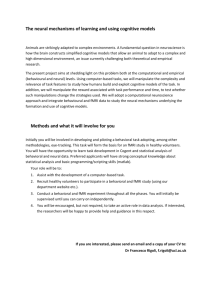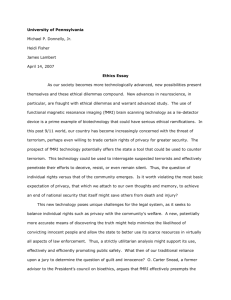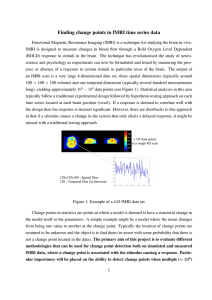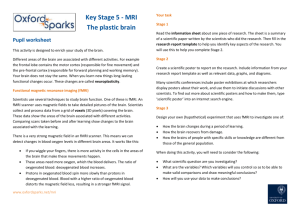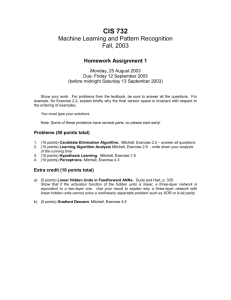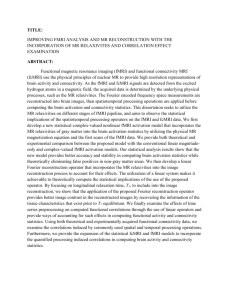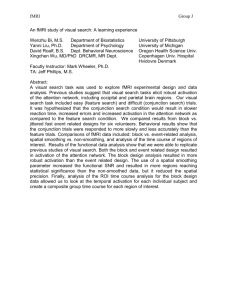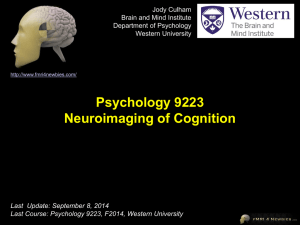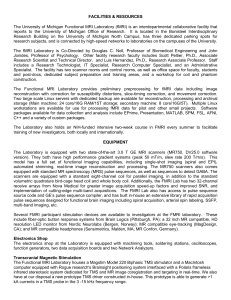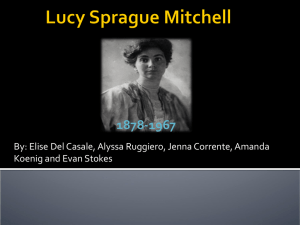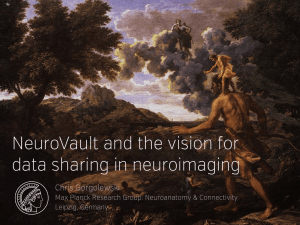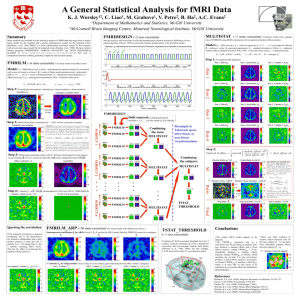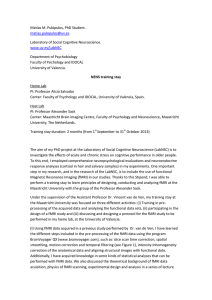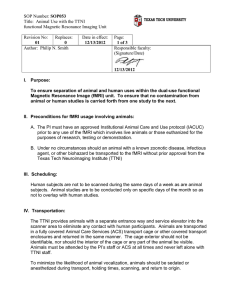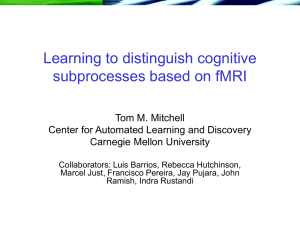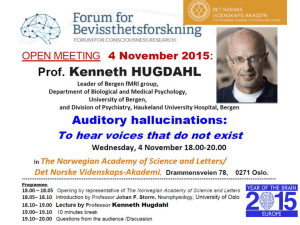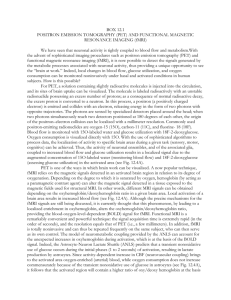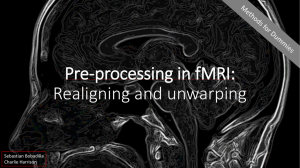Tom_Mitchell - Computer Science
advertisement
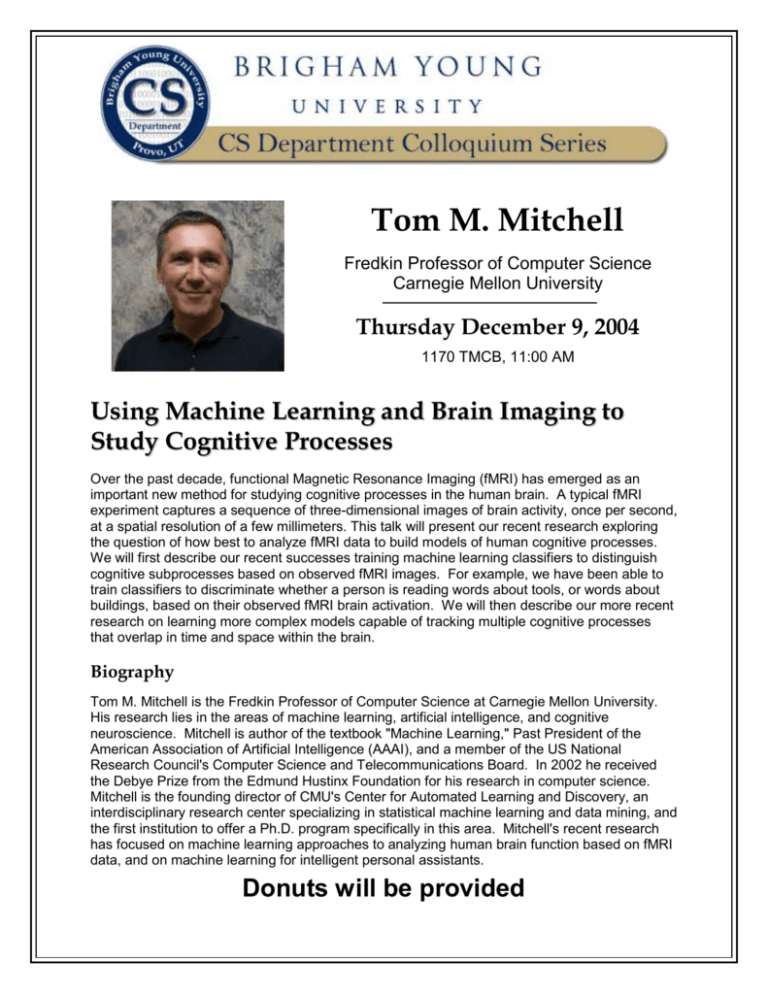
Tom M. Mitchell Fredkin Professor of Computer Science Carnegie Mellon University Thursday December 9, 2004 1170 TMCB, 11:00 AM Using Machine Learning and Brain Imaging to Study Cognitive Processes Over the past decade, functional Magnetic Resonance Imaging (fMRI) has emerged as an important new method for studying cognitive processes in the human brain. A typical fMRI experiment captures a sequence of three-dimensional images of brain activity, once per second, at a spatial resolution of a few millimeters. This talk will present our recent research exploring the question of how best to analyze fMRI data to build models of human cognitive processes. We will first describe our recent successes training machine learning classifiers to distinguish cognitive subprocesses based on observed fMRI images. For example, we have been able to train classifiers to discriminate whether a person is reading words about tools, or words about buildings, based on their observed fMRI brain activation. We will then describe our more recent research on learning more complex models capable of tracking multiple cognitive processes that overlap in time and space within the brain. Biography Tom M. Mitchell is the Fredkin Professor of Computer Science at Carnegie Mellon University. His research lies in the areas of machine learning, artificial intelligence, and cognitive neuroscience. Mitchell is author of the textbook "Machine Learning," Past President of the American Association of Artificial Intelligence (AAAI), and a member of the US National Research Council's Computer Science and Telecommunications Board. In 2002 he received the Debye Prize from the Edmund Hustinx Foundation for his research in computer science. Mitchell is the founding director of CMU's Center for Automated Learning and Discovery, an interdisciplinary research center specializing in statistical machine learning and data mining, and the first institution to offer a Ph.D. program specifically in this area. Mitchell's recent research has focused on machine learning approaches to analyzing human brain function based on fMRI data, and on machine learning for intelligent personal assistants. Donuts will be provided
